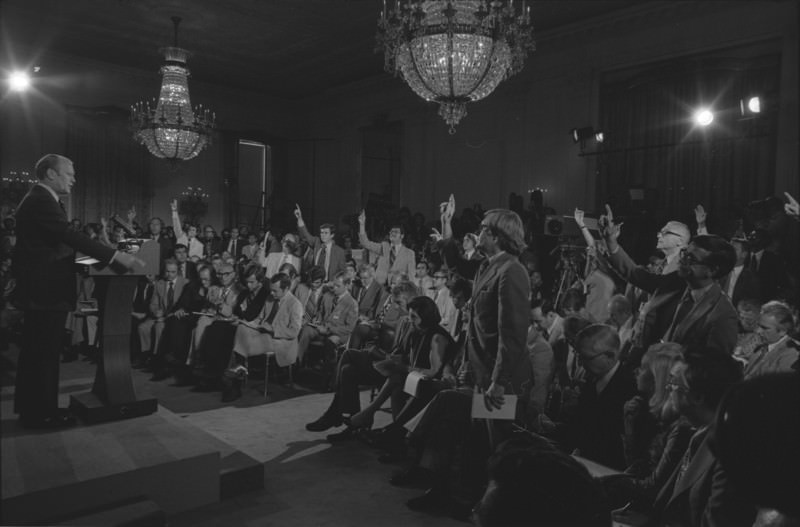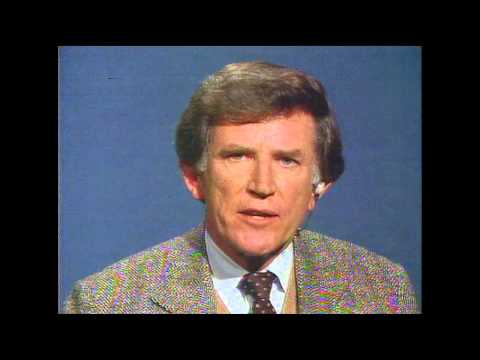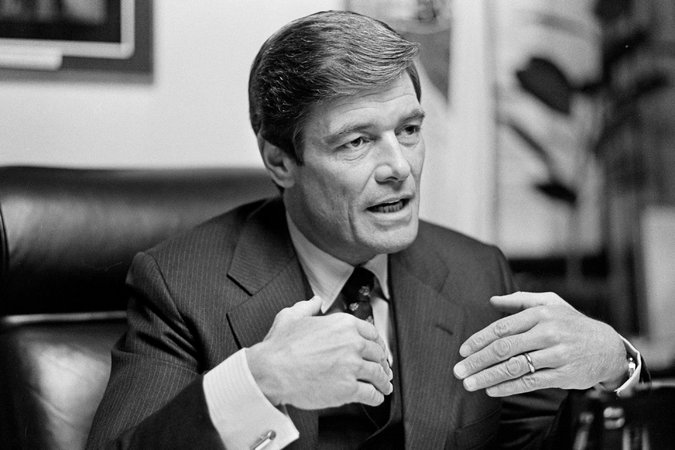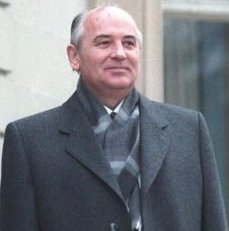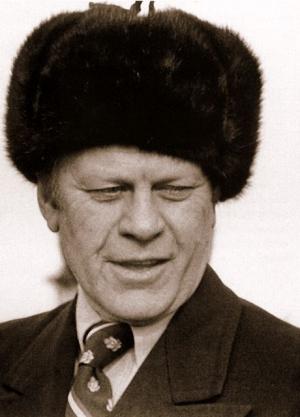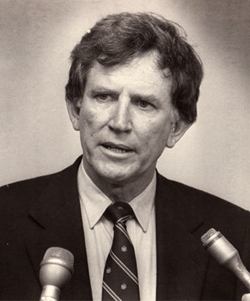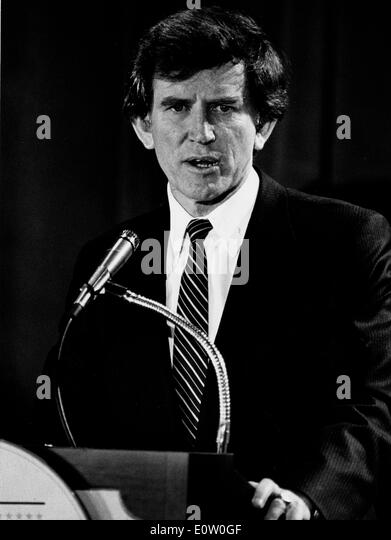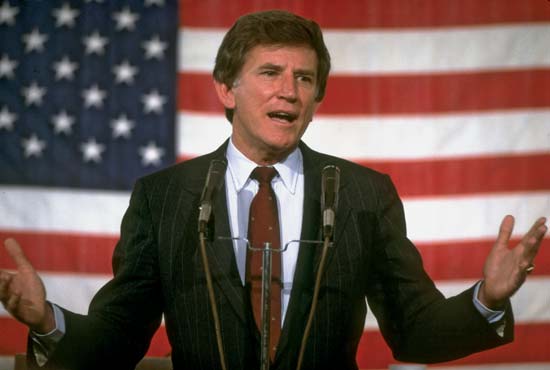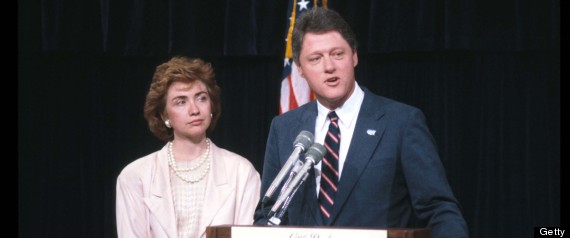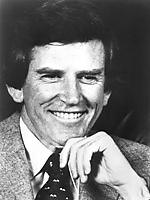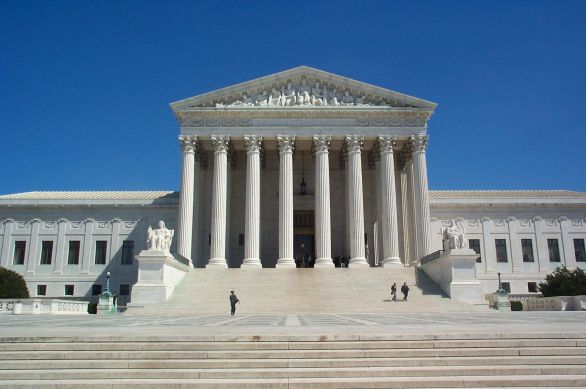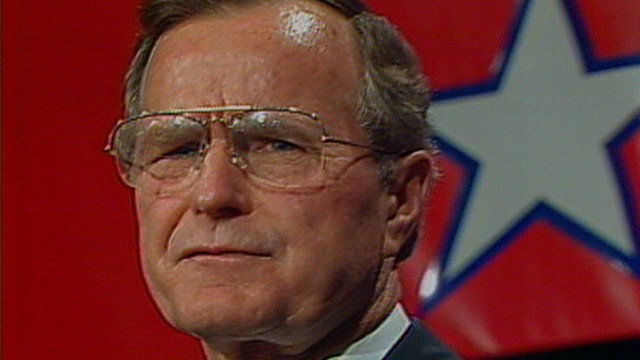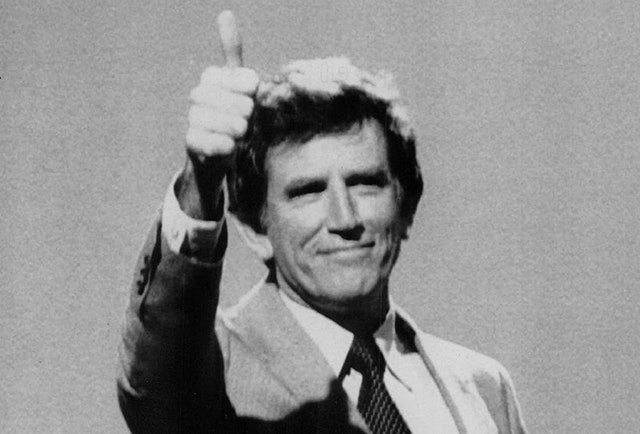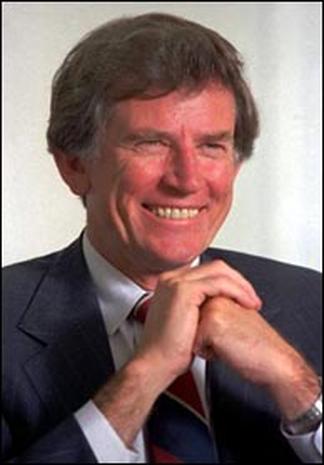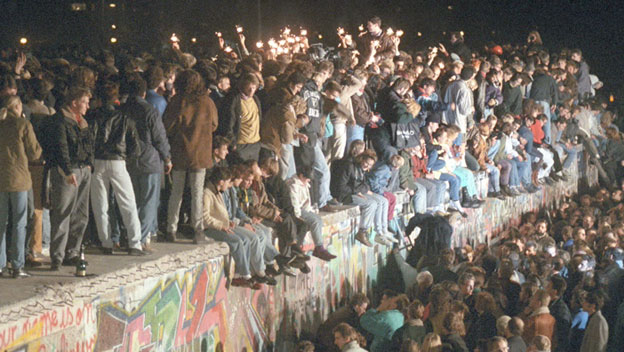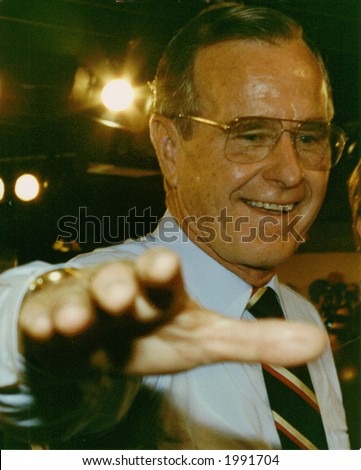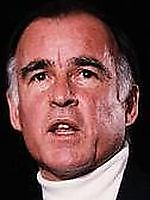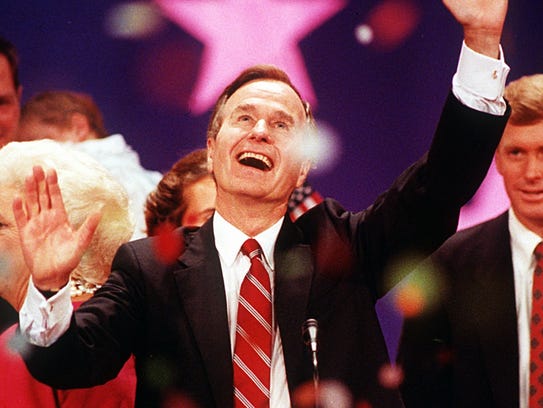President Ford's last major act:
On November 13th, President Gerald Ford took his last foreign trip as President to Geneva to meet with Soviet Leader Mikhail Gorbachev. The two both wanted to meet earlier in the year, but scheduling conflicts prevented it from happening. Ford hoped to get achieve a Nuclear arms reduction agreement with Gorbachev, something he couldn't do with Brezhnev or Andropov.
Ford took the opportunity to praise Gorbachev for continuing the Soviet Withdrawal from Afghanistan. Gorbachev told Ford that all troops would be out by January 6th. Gorbachev said Ford made the world a safer place by keeping his end of the 1983 agreement.
After that, negotiations began. Both men came to that meeting wanting to discus nuclear arms reduction, and eventually both reached an agreement. Both countries agreed to a 10% reduction of Nuclear Arms by the year 1994. The treaty signing ceremony would be held at the White House next month. Ford and Gorbachev, before leaving went to a press conference to announce the agreement. Both said that the world was safer for this agreement, and hoped that future leaders of their countries will make the world even safer. Gorbachev also said he hoped to meet with President Elect Hart after he is sworn in as President.
The Final Days of the Ford Administration
On December 10th, 1984 President Ford and General Secretary Gorbachev signed the Nuclear Arms Reduction Treaty of 1984 at the White House. Also in attendance was Secretary of State Bush.
On January 17th, 1985 President Gerald R. Ford gave his farewell address to the nation from the Oval Office:
"My fellow Countrymen. Tonight will be the last time I speak to you from this historic office as your President. It has been my honor to serve as both the 38th and the 40th President of this Great land. I want to take this opportunity to say thanks to Vice President Ronald Reagan for rising up at a time of tragedy to serve as our Vice President. He has been a great asset for me and has served our nation well, and I will always be grateful to my previous Vice Presidents Nelson Rockefeller and Jack Kemp. I am also grateful to all those who have served in my cabinet past and present. I also want to thank my wife Betty and my children for standing by my side at all points of my political career, and I look forward to spending a lot of time with them for many years to come. We've overseen and overcome a lot together. When I first ascended to this office in August of 1974, our nation was shaken by the biggest scandal of our time, and together we healed our nation and restored confidence in our system of government. We dealt with a recession and inflation, and together by January 1977 when I first left this office, we steered our country on to a path of recovery. In 1980, at a time of double digit inflation, an energy shortage, strained relations with the Soviet Union and a Soviet occupation of Afghanistan, and a hostage crisis in Iran, you elected me to serve as your President again, and I will be forever grateful to you the American People, for giving me the opportunity to serve once more. Over these last four years, we made our country stronger and more prosperous, and made the world a safer place. Inflation has finally been whipped, unemployment is falling, and business is booming again. Thanks to the Kemp tax cut of '81, Americans have more money in their pockets to use as they please. We addressed the AIDS epidemic, and spared millions of lives. Our military is stronger, and Lebanon and Grenada are better and safer thanks to our intervention. The Soviet Union has finally withdrawn from Afghanistan, and thanks to our most recent agreement with General Secretary Gorbachev we will finally see a reduction in Nuclear Arms over the next 9 years. I hope that this agreement will be ratified by the Senate in the coming months, and I hope that the progress we've made since January of 1981 can be built upon in the years to come. I've used this opportunity to talk a lot about the progress that we've made, and we did make a lot of it. However, we also have some more work to do. Our last budget saw a reduction in our deficit, and while that's great, we need to get our budget balanced. We also need to get our debt under control, so that hopefully, we can begin to pay the debt down in the near future. There is also more that can be done to make the world more peaceful and more secure, but I can't stress enough that we must not make ourselves less secure, to attempt to bring this about. Well my fellow Americans, it's time for me to end this speech by again thanking you for the opportunity to serve. Our land is a great land with great people, and a very bright future, and I wish the Next President Gary Hart and the Next Vice President John Glenn the very best over these next four years. Thank You for listening, good bye, God Bless this great nation, and may God bless you all.

The Start of the Hart Administration:
Due to January 20th falling on a Sunday, two inaugural ceremonies would take place. The official Swearing in of the 41st President and the 45th Vice President took place at a private ceremony in the Grand Foyer of the White on January 20th. Even though the event was private, it was televised. Outgoing President Gerald Ford, and outgoing Vice President Ronald Reagan were in attendance as were members of the Hart and Glenn families. Also, movers, who were moving the Ford's belongings out of the White House and moving the Hart's belongings in were allowed to take a break from moving furniture and watch the President Elect and Vice President Elect take the oath of office. Chief Justice Warren Berger administered the oath of office to Gary Hart and Associate Justice Thurgood Marshall administered the oath to John Glenn. Hart gave a brief speech after taking the oath.

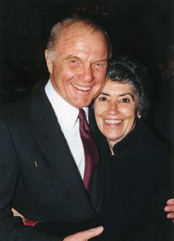
After the events of the official ceremony took place, President Hart and Vice President Glenn and their wives walked Former President Ford (who's exit approval rating was 61%) and Former Vice President Reagan and their wives to Marine One, which was parked on the White House lawn, which would take them to Andrews Air Force base where they would board SAM 26000 to fly back to California. A "welcome home" ceremony was waiting there for them.
The Public inaugural Ceremony would take place the following day. Due to historically cold weather, the ceremony would be held inside the Capitol Building. Many other outdoor events were canceled. Hart and Glenn retook their oaths, and President Hart gave is inaugural address:
"Chief Justice Berger, Vice President Glenn, Speaker O'Neil, Senator Byrd, distinguished guests, my fellow Americans. Today marks the beginning of a new era, and one I hope will be a bi partisan one. In the spirit of bi partisanship, as I did yesterday in my speech, I want to thank President Ford for his many years of service to this nation and thank him for a very smooth transition of Power. I would also like to thank my former rivals, Senator Howard Baker and Congressman Phil Crane for a hard fought and spirited campaign. Our Country is a Country that saw a revolutionary War, a Civil War, two World Wars, and a Great Depression, and we have emerged out of those a better and stronger country. We are in a time where our economy is growing, but growing very un evenly and a lot of people are out of work as a result. I hope to work with members of Congress to pass a program that puts people to work and invests money in out crumbling infrastructure. With that program, we must ensure that a woman who does the same work as a man, gets paid the same amount of money....
Internationally, we must work to make our world safer. While we have agreed with the Soviet Union to reduce our Nuclear Weapons by 10% over the next decade, we must go further and do away with other deadly weapons. We must also get other countries to join us to achieve peace...
So my fellow Americans, let's work to make our country even greater and create a more peaceful and just world. Thank you, God bless you, and God bless The United States of America."
President Hart's Address Before a Joint Session of Congress on the State of the Union
On February 6th, 1985, President Gary Hart addressed a joint session of congress and the nation about the State of the Union:
"Mr. Speaker, Mr. President, members of the 99th congress, and my fellow Americans. Tonight is the first time I will address you from this chamber as your President and like all who have served before me, I will use this opportunity to talk to you about the state of our union and outline my agenda for the year. The State of Our Union is not weak, but it is not as strong as it should be.
Over the last 2 years, we've seen economic growth, however many of our fellow Americans are still out of work. We can put our unemployed back to work by investing in our infrastructure, and I look forward to working with members of Congress, Republican and Democratic alike, to create a program that modernizes our infrastructure and puts our fellow citizens back to work, and with that we must give them the resources to be successful at their job, so we must also invest in job training and education. We must ensure everyone who wants a job a job gets a job and everyone who wants a post secondary education gets one, and gets it without financial burden. We must also guarantee equal pay for equal work, so I will ask members of congress to pass the Equal Rights Amendment. It is sad that in 1980s America, a woman who does the same exact job as a man is not paid the same wage. We can do better than this and must...
Internationally, we must use our influence around the world to promote Human rights. We must also work for peace in the Middle East. In 1978, the President Carter helped broker peace between Israel and Egypt with the Camp David accords. That agreement is still intact today, and that is proof that more peace is achievable. Our next step in the Middle East should be achieving peace between Israel and the Palestinian State. At the end of last year, my Republican predecessor achieved an agreement with the USSR to reduce Nuclear Weapons by 10% over the next decade. The agreement just needs to be ratified, and I as a Democrat and in the spirit of Bi partisanship ask the U.S. Senate to ratify that agreement. This agreement will make this world safer, and I hope to meet with Secretary Gorbachev very soon so that we can build on that progress and make the world even safer...
I have talked a lot about what I believe needs to be done to make the State of our Union stronger. Our great country has accomplished many great things in its 200 plus years of history, and I hope to work with you to make history and to make our country stronger. Thank you, God bless you, and God bless this Great Nation."
March 10th: The Senate Ratifies Nuclear Weapons reduction Treaty
On March 10th, 1985, the United States Senate voted 56-44 to ratify the Nuclear Arms reduction treaty signed by Former President Ford at the end of the previous year. The agreement is to take affect in April.
President Hart said in a press conference that he was glad that this agreement was ratified and that the world was safer for it. He told the press that he hoped that the progress can be built upon over the course of his Presidency.
Former President Ford also issued a statement congratulating the Senate, claiming that it was a victory for diplomacy and that the world was better for this agreement being ratified.
Hart's Jobs and Infrastructure Bill Passes the House fails in the Senate:
The House version of President Hart's Jobs and Infrastructure program was introduced on May 6th, 1985. It included $100 billion towards infrastructure investment, $25 billion in job training programs, and another $50 billion towards education. After 4 days of debate, the bill passed by 230-205.
The Senate version, proposed a week later, however was smaller. It had $75 billion for infrastructure, $10 billion for job training programs, and $25 billion for education spending. 51 senators (48 Republicans, 3 Democrats) voted against the bill and 49 voted in favor of it. Republicans in both chambers attacked the bill because of the costs and because they felt the jobs training programs hurt business. Senate minority Leader Bob Dole said on the Senate floor that "For a President that campaigned on New ideas, this bill he proposed is full of old and tried ideas."
President Hart responded in an interview on ABC about the bills failure to pass the Senate that "It is important to invest in our people and modernize our infrastructure. This is the best way, in my opinion to do it, but I'm open to working with members of both parties to hear their ideas and come up with a compromise. The failure of this bill in the Senate does not mean the debate is over. We need a jobs program."
Congress goes on Summer recess, Hart's Approval Ratings begin to fall:
When congress went on recess at the end of June 1985, the only major act that was accomplished was the ratification of the Nuclear Arms reduction treaty. President Hart's jobs and infrastructure bill failed to pass in the Senate and the Equal rights amendment didn't even make it to the floor of the house for a vote.
The President, in the eyes of voters, was starting to look like a lame duck. Hart's approval ratings, which were 63% when he took office in January, had fallen to 51% by the end of June and this was despite economic growth.
When asked about his fallen approval rating at a press conference, President Hart responded by saying that "It shows that the American people a frustrated with the lack of progress, and keep in mind, that same poll showed congress' approval ratings also took a hit as well. When the congress returns from recess this August, I plan to meet with leaders of both parties and both houses, and in those meetings I hope to get a deal on infrastructure. Any concerns of costs members may have about this will be addressed in this meeting as we are also going to begin budget negotiations for next year as well. As I said before, the American people need jobs, and because of that, I am determined to get an infrastructure bill passed."
The Budget Battle of '85:
August and September of 1985 saw a month long budget battle. The President and congressional Democrats wanted to push for the President's infrastructure plan and congressional Republicans fought hard against it, calling it wasteful spending and telling voters that inflation would return if this bill were to pass. The President and congress did however eventually work out a deal on infrastructure spending in early September. What was finally passed was smaller than both the house bill that passed and the Senate bill that failed to pass, as $60 billion would be invested in infrastructure, $10 billion would be used for job training (one part that was the same in the Senate bill) and $12.5 billion would be put towards education.
The battle did not end there however. President Hart, and most of the congressional Democrats wanted cuts in defense spending, while Republicans and Conservative Democrats would not allow any cuts. Some members even wanted an increase in defense. The President argued that there was no major war going on and would be wasting tax payer dollars if we kept defense spending at current levels. Opponents of Defense Cuts argued that "We saw what happened when we cut defense after the Vietnam war. When the Soviets invaded Afghanistan and our people were taken hostage in Iran, we did not have the means to respond, and both President Carter and President Ford increased defense spending as a result, and even after agreeing to a cut in defense in 1983, President Ford still left with a defense budget higher than it was in 1979. We cannot allow ourselves to cut our defenses only to be unprepared when a crisis happens." A battle continued until exactly one day before the end of the fiscal year.
Not wanting a Government Shutdown in the first year of his Presidency, the President agreed not to cut defense. The deficit, due to an increase in domestic spending, increased for the first time in two years. The President said of the deal that while he was happy that he got some infrastructure spending passed, he didn't feel it went far enough and was also upset that the deficit saw an increase, as he felt it was congresses' failure to cut defense that caused it.
The President's approval rating, which was stuck at 51% from the end of June through August had fallen to 49% at the end of September, reinforcing the belief that Hart was a lame duck. Pundits predicted that if this continued through 1986, the Republicans would retake the Senate and make gains in the house in the '86 midterms and that Hart risked being a one term President. Will this be the case??? Stay tuned to find out...
Hart Meets Gorbachev:
On November 11th, 1985, President Gary Hart flew to Geneva to meet Soviet Premier Mikhail Gorbachev for the first time. Hart praised Gorbachev for getting Soviet Forces out of Afghanistan earlier in the year and Gorbachev expressed his happiness that the Nuclear Arms Reduction treaty was ratified in the Senate.
Both men spent most of their meeting discussing Human rights, particularly in Eastern Europe. While no agreement was achieved, many observers believed that something would be achieved within the next year. Both Hart and Gorbachev said of the meeting that this was a good meeting. They both got to know what the other's goals were and had an idea of what they both could achieve. The President's Press secretary stated that Hart and Gorbachev would be meeting sometime in the following year.
January 1986:
The Space Shuttle Challenger launch, which was supposed to launch on January 22nd, was delayed due to concerns over the O Rings that sealed the field joints. The launch would not take place until these concerns were addressed and any problems were fixed.
On January 28th, President Hart gave his Second State of the Union address:
"Mr. Speaker, Mr. President, members of congress, distinguished guests, my fellow Americans. Tonight, I can say that the state of our Union is stronger than it was when I gave my first state of the Union a year ago. We passed an infrastructure bill that is set to create millions of good paying jobs and put millions of people back to work, and we are beginning to reduce the number of nuclear weapons in the world. These are great accomplishments, however our work does not end yet. While it is great that we have new jobs being created, we need to insure that the people filling these jobs as well as every other hard worker in this country has protected leave so that if they or a family member of theirs gets sick and they need to take time off, they can and won't have to worry about losing their job. A bill that will guarantee every worker protected leave has been brought to the floor, if it gets passed, I will gladly sign it. We must also, as I said last year, work to ensure that every worker in this country is paid an equal wage for women who do the same work as men. We had an opportunity to get an Equal Rights Amendment last year and we failed. Now is the time to do it, and for those of you who say this legislation is anti business, I must ask. What's so anti business about ensuring equal pay for equal work?...
This Past fall, I met with Mikhail Gorbachev of the Soviet Union, while nothing of significance was achieved, it was a good meeting, and I hope to work with him to make the world a safer place the next time we meet this year. I have also paid close attention to the situation in South Africa this past year as well. It has come to my attention that members of both parties want to put sanctions on South Africa to end Apartheid. Well, I have news for you, so do I. Let's make these sanctions a reality so that we can eventually put an end to this brutal system once and for all... I also hope to work for a more peaceful Middle East as well...
There is a lot of work to do both at home and abroad. I hope to have a very productive year and one with less partisanship. The American people sent us here to make progress and if we work together, a lot can be done to make our already great nation, even greater. Thank You, God bless you, and God Bless America."
Overall, the President's speech was well received and his approval ratings, which were between 48 and 49 percent throughout November and December we now at 50 percent. Unemployment was now down to 6.8%, it finally bellow 7% for the first time in almost a decade, and some projected that President Hart's infrastructure program would accelerate Job creation.
Education Secretary resigns due to Sex Scandal:
In late February of 1986, it was leaked that Secretary of Education Bill Clinton was involved in an extra marital affair with an intern. He initially denied the affair. However, it didn't end there. A woman named Gennifer Flowers came forward and alleged that she and Clinton had a four year affair when he was Governor of Arkansas. Finally, after about of month of controversy surrounding both alleged affairs, photos of Clinton and his mistress and his intern were released in his Washington office and Clinton finally resigned. He, his wife Hillary, and his daughter Chelsea left Washington to live in Mrs. Clinton's home state of Illinois instead of Secretary Clinton's home state of Arkansas.
President Hart nominated another southern Governor, Richard Riley of South Carolina, to replace Clinton as Secretary of Education on April 3rd. The Senate voted 53-47 to confirm the appointment.
Family Medical Leave Passes Congress. Hart signs legislation:
On May 20th, 1986, President Gary Hart signed the Family Medical Leave Act of 1986. The bill passed both houses relatively easily although not decisively. After signing the legislation, the President said that this was a great day for working Americans and no longer did they have to fear losing their job when they or a loved one got sick.
September 1986: The month that started good and ended with a budget battle
On September 8th, 1986, after being delayed, yet again for almost 8 months, mission STS-51-L, the tenth mission for the Space Shuttle Challenger had successfully launched. President Hart addressed the nation shortly after, congratulating the crew and NASA for the successful launch. He also, however announced that he was establishing a new Presidential commission on Safe Space travel, headed by Vice President John Glenn. This commission would establish better safety requirements and inspections of Space Shuttles and would also work to find ways, through research, to make better parts for shuttles and to develop and build better Space Shuttles. The main purpose of this commission was to ensure the safety of the men and women sent to space without long delays in launches.
The Country was happy about the success of the Challenger launch. However, that happiness wouldn't last. Late September 1986 saw a budget battle just like in 1985. This battle however was not about infrastructure. It was about the deficit and how to lower it. House and Senate Republicans proposed a cut in entitlements and a simplification of the tax code. The President, and a majority of his party, as it did a year earlier, proposed defense cuts and tax increases on the wealthy and undoing the corporate tax cut that was part of the Kemp tax Cuts of 1981. Southern Democrats again sided with the GOP when it came to defense cuts and opposed them, taking defense cuts off the table. The President said doing anything to the tax code as of now would risk cutting revenues, causing a bigger increase in the deficit, and his party agreed that taxes could not be cut.
Finally, after failing to get a budget passed by the September 27th deadline, causing a two day government shutdown, congress finally passed and the President signed the budget for 1987. The budget, saw no increases or decreases in spending or taxes, leaving the deficit unchanged from the year before.
The midterm elections of '86:
The midterm elections of 1986 did not go well for President Hart and the Democrats. The Democrats went into the midterms with a 265 seat majority in the house. That majority was reduced by 35 seats, leaving them at 230 seats. A notable race was Congressman and Conservative third Party Candidate Phil Crane, who faced and lost a primary challenge in his district. Despite Crane losing the Primary race, his seat stayed Republican.
The Senate fared even worse for the Democrats. Going into the elections with 51 seats, they lost 8 seats, giving the GOP a 57 seat majority. The President's former Senate Seat in Colorado, went to Republican Ken Kramer and Richard Stallings, Idaho Democrat who was appointed to the Senate after the death of Frank Church, lost his Senate seat to Republican Steve Symms. Nevada Senator and former Presidential candidate Paul Laxalt's seat (Laxalt retired from the Senate) went to Republican James David Santini, defeating Democrat Harry Reid. California Democrat Alan Cranston also lost his seat, and incumbent Republican Paula Hawkins of Florida defeated Democratic Governor Bob Graham.
The GOP also managed to gain 8 seats in the Governors races.
Despite keeping the house majority however a new Speaker of the house would be sworn in in January 1987 as Incumbent Speaker Tip O'Neil was retiring. Texas Democrat Jim Wright would replace him.
Bob Dole would become the new Senate Majority leader.
President Hart, whos approval ratings were 47% on election day, congratulated the Republicans and said he looked forward to meeting with Senator Dole in the coming weeks.
Hart meets with congressional leaders, Muskie goes to the Middle East:
President Hart met with the new Senate Majority Leader Bob Dole and Speaker Elect Wright in the Oval Office to discuss the following year. Dole and Wright left the meeting believing the meeting was a productive one and hoped that working with the President throughout the next year could be as productive as their meeting was.
The President in a press conference that took place after his meeting with Dole and Wright announced that he was going to be meeting Premier Gorbachev in early January after the holidays wrapped up. He hopped that this next meeting could be more productive than his first.
Also, Secretary of State Edmund Muskie spent the first two and a half weeks of December traveling throughout the Middle East where he would meet numerous leaders to discuss the issues of the region and discuss with them how the Middle East could be more peaceful. He was to meet with the President upon his return to Washington.
Hart Meets Gorbachev again: A Reduction in Intermediate Range Missiles reached
Early January of 1987 was a significant point, not only for the Hart Presidency, but a significant point in the Cold War. On January 7th, 1987, President Gary Hart and Soviet Premier Mikhail Gorbachev, at a meeting in Iceland, agreed to a reduction in both conventional and Nuclear Intermediate Range Missiles in Europe. Hart and Gorbachev would meet again at the White House in early February to officially sign the agreement.
President Hart in a press conference that took place two day later said that "Wednesday was a great day for diplomacy. This agreement not only makes the world a safer place, but it also brings us one step closer to ending a conflict that has been going on for close to four decades. I look forward to having General Secretary Gorbachev here at the White House to sign this treaty next month, and I hope that once it is signed that the Senate can ratify it as soon as possible."
State of the Union 1987:
On January 27th, 1987, President Hart gave his third State of the Union Address:
"Mr. Speaker, Mr. President, members of Congress, distinguished guests, my fellow citizens. Tonight, I want to first congratulate all of you who are a part of this historic 100th congress, especially those of you, Republican and Democratic alike, who were just elected this past November. Our Senate has a new majority and a new leader and while our House is still in Democratic hands, it to has a new leader. I want to also take this opportunity to congratulate Speaker Jim Wright and Senate Majority leader Bob Dole. I was glad to have met with them one month ago to discuss the work that needs to be done this following year, and my hope is that work can and will be done.
Many of you who are here tonight were elected to Simplify the tax code. Let me say to you and to the American People that I am open to doing that. However, it must be done in a responsible way. We cannot do this in a way that hurts so many working families, nor can we do this in a way that increases our deficit, and speaking of the deficit, it needs to be lowered and lowered in a balanced way, and hopefully it can be done without a government shutdown. The American people deserve better than what they got this past September when the Government shut down, and we must give them better this year....
This Past December, Secretary of State Muskie traveled the Middle East. In that region, We have a war between the Iraqis and the Iranians. Despite our mission in that Country earlier this decade, we still have issues in Lebanon, and most importantly, we have what seems like a never ending feud between Israel and Palestine. This year, my hope is to finally begin making the Middle East more peaceful, and in the coming months, I will be meeting with the leaders of Israel and Palestine to hopefully bring some peace. Earlier this month, I traveled to the Soviet Union to meet with Secretary Gorbachev, and together we reached an agreement to reduce both conventional and Nuclear Intermediate Range Missiles in Europe. He will be coming to Washington in the coming weeks and we will both sign this treaty, but it's enactment is dependent on the ratification of the treaty by the Senate, and my hope is that partisanship doesn't get in the way of diplomacy...
Members of congress, let's work together for the American people. Let's work to make 1987 a productive year and let's work to make this historic Congress the most productive in history. Thank you, God bless our Great Country, and may God bless all of you.
A Supreme Court Justice is Retiring:
One day after the State of the Union Address, Associate Justice Thurgood Marshall announced his intentions to retire as a Supreme Court Justice, once a new appointment by the President was confirmed.
President Hart in a press conference praised Marshall for his near 20 years on the court and said that he would begin vetting possible replacements and would nominate someone as soon as the best choice was found.
IRM Reduction Treaty signed:
On February 9th, 1987, the Intermediate Range Missile Reduction treaty was signed by President Gary Hart and General Secretary Mikhail Gorbachev at the White House. After signing the treaty, the two men shook hands. Hart said in a speech he gave after the ceremony that "Mr. Gorbachev and I did our part, now it's time for the Senate to do its part and ratify this treaty, and bring it into effect.
Hart makes an appointment for the Court, the First candidate for '88 enters the race:
On February 25th, President Hart nominated 46 year old Harry Edwards, a Judge of the US Court of Appeals for the DC circuit, to replace outgoing Supreme Court justice Thurgood Marshall. The appointment was well received by Democrats, but Republicans questioned whether Edwards was qualified for the highest court considering he had only been on the U.S. court of Appeals for only 7 years. Despite this, Hart was confident that the appointment would be confirmed.

Also, On March 2nd, retired Nevada Senator and former Presidential candidate Paul Laxalt declared himself a candidate for the 1988 Republican Presidential nomination. In his speech, Laxalt said that the Country was heading in the wrong direction, that government grew thanks to the policies of the Hart/Glenn administration, and that the President was giving way too much to the Soviet Union. Laxalt went on to say that he "fought tooth and nail" against Hart's policies the last two years he was in the Senate, and that he would undo all of Hart's policies if elected President.
Howard Baker and Bob Dole not running for President:
A week after Paul Laxalt declared his candidacy, Former Senator Howard Baker, who was narrowly defeated by President Hart in 1984, in an interview with ABC's Peter Jennings said that he would not be a candidate for the President. He said that "one run was enough. I'm enjoying retirement and spending time with my family." Asked if there was anyone particular in his party he'd like to see run for the Presidency, he said that the GOP has plenty of great candidates and that he'd make an endorsement later in the process.
Senate Majority Leader Bob Dole also said in an interview with CBS that he would not be a candidate for President in 1988, saying that "I've just been given the honor of being the Majority Leader of the United States Senate, I feel my time and focus would be better spent on the role as majority leader. Plus, I ran for President twice in the last eight years, it would be nice to take a break from Presidential politics." When asked if there was a possibility of a future Presidential run, he responded by saying "we'll see what the future holds."
Edwards confirmed by the Senate, sworn in on May 1st.
On May 1st, Harry Edwards was sworn in to replace Thurgood Marshall as an associate Justice of the Supreme Court after being confirmed by the Senate three days earlier by a vote of 69-31, making him the second African American appointed to the United States Supreme Court.
A Suprise Candidate throws his hat into the race for President.
On May 4th, to the shock of many, Former Secretary of State George Bush of Texas declared his candidacy for the Presidency of the United States, calling for "a kinder, gentler nation" at home and made the case that he was the best candidate to bring peace and stability abroad and do so on our terms. Polling taken days after showed Laxalt ahead of Bush 45% by 25% with 30% undecided.
IMR Treaty Ratified by the Senate, New Jersey Gevernor enters race for President:
On May 7th, the United States Senate ratified the Intermediate Range Missile Reduction treaty by a vote by 53-47. The bill would officially take effect in early June. Many were wondering, with the ratification of this treaty and with Nuclear Arms reduction treaty of 1984 being in effect, if the end of the Cold War was finally near.
Two days later, New Jersey Governor Tom Keane entered the race for President of the United States, coming off of a landslide re election in 1985. He said he was the candidate to reform Welfare, Protect our environment, and reform education, as he did these things as governor.
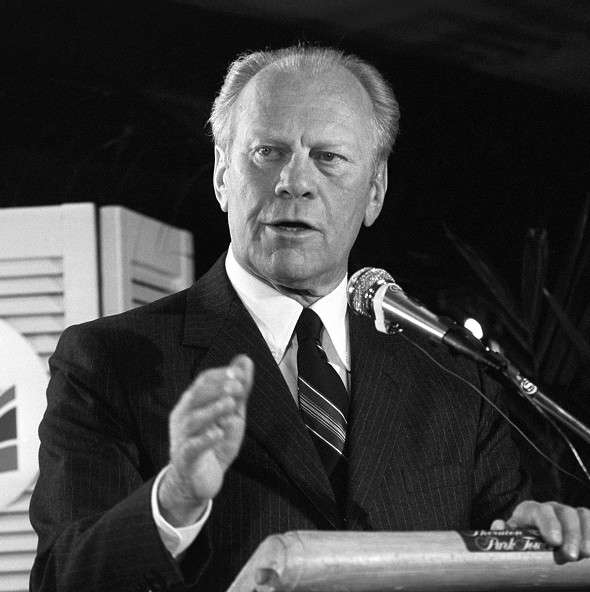
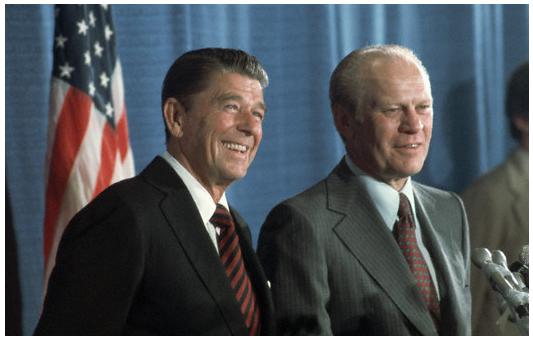
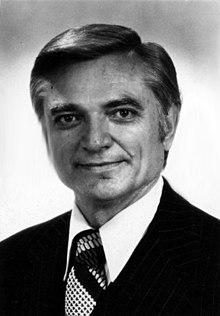
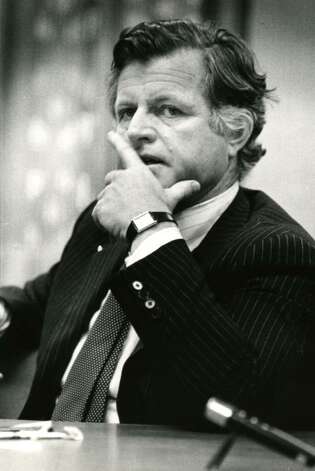
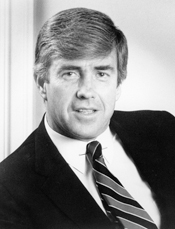

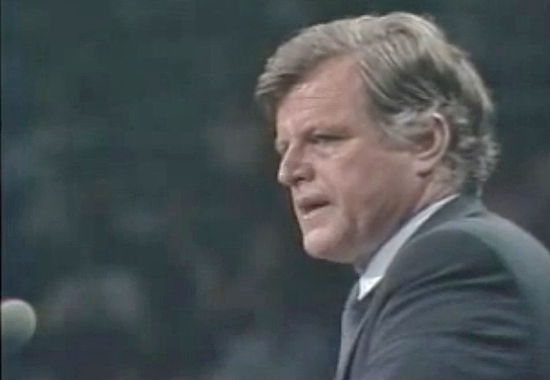






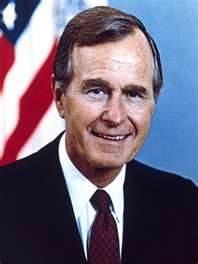



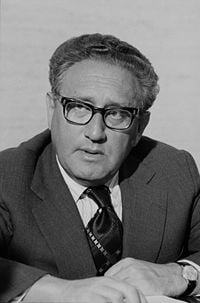



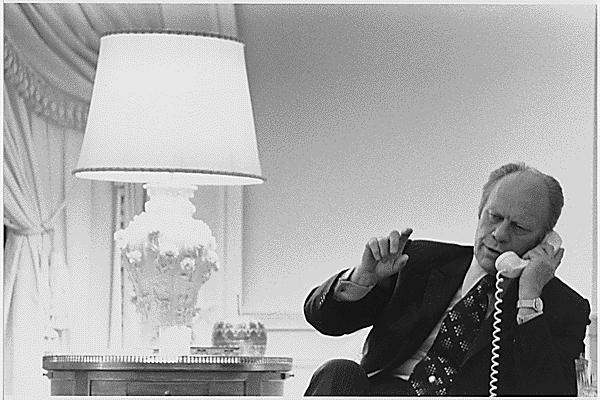
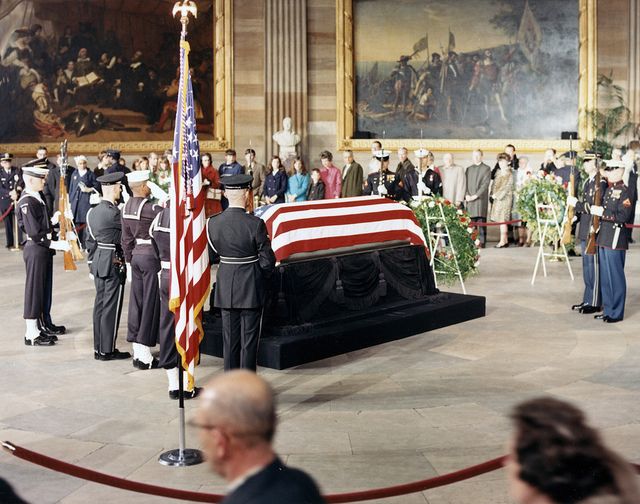
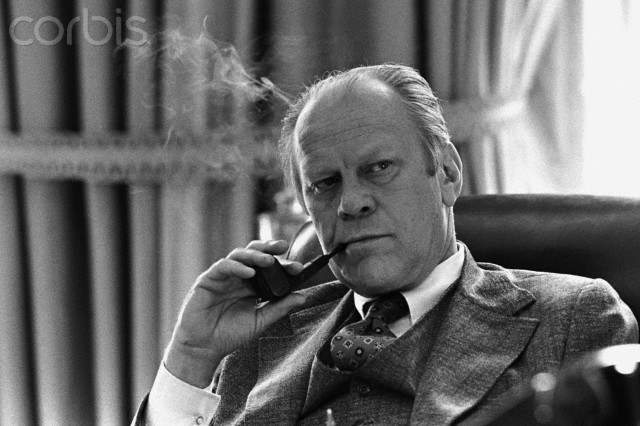


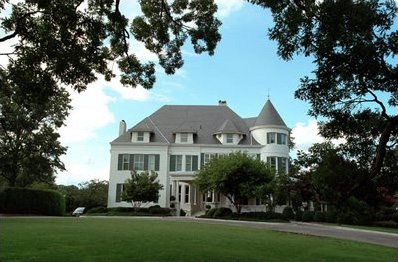
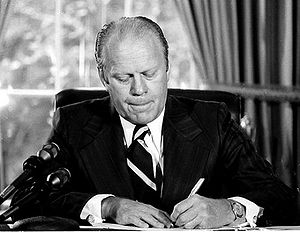




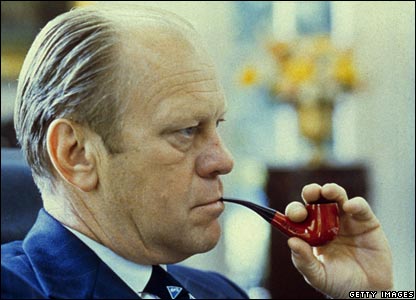

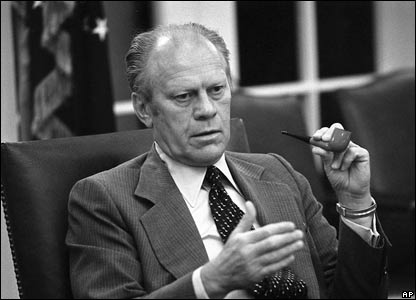
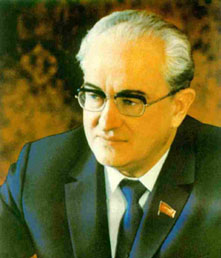

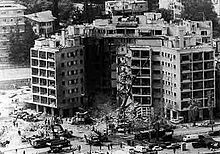

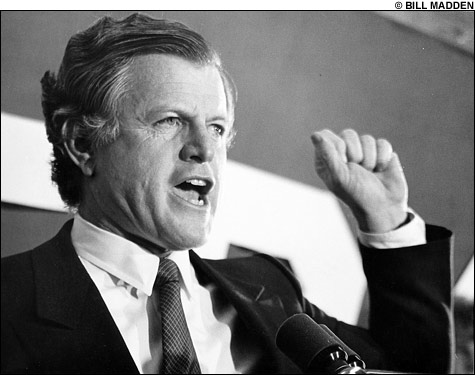



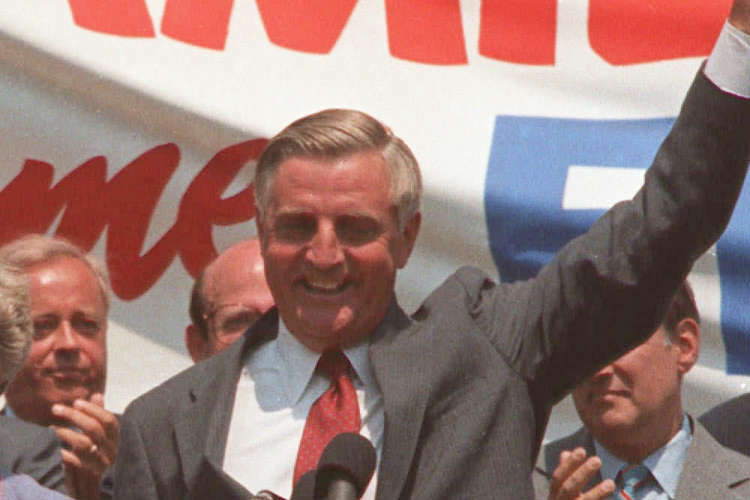
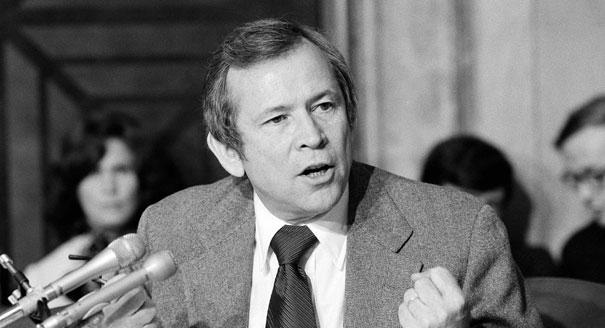

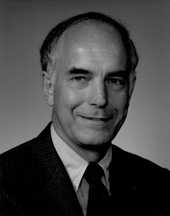


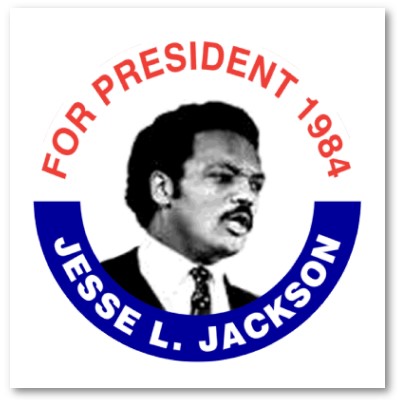
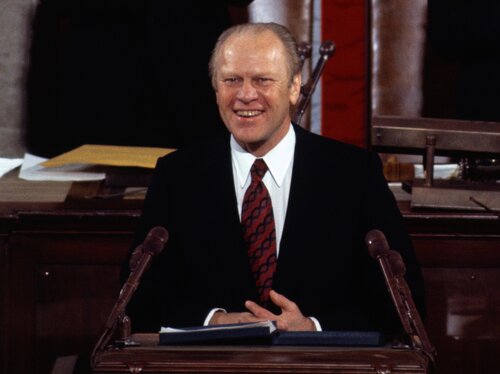


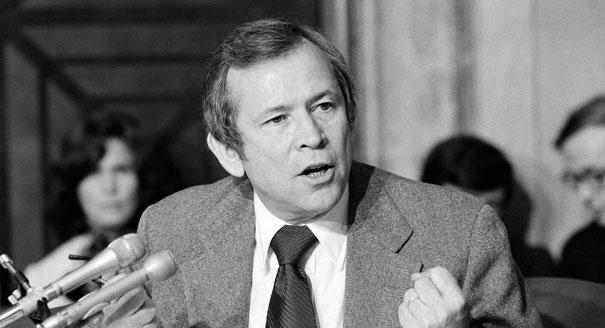







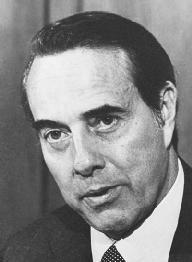
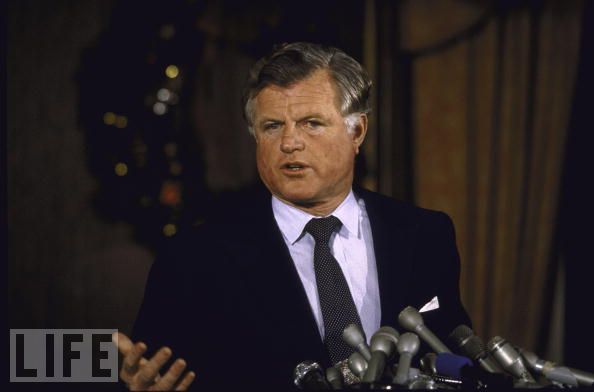
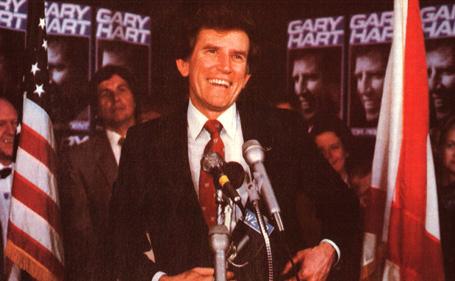


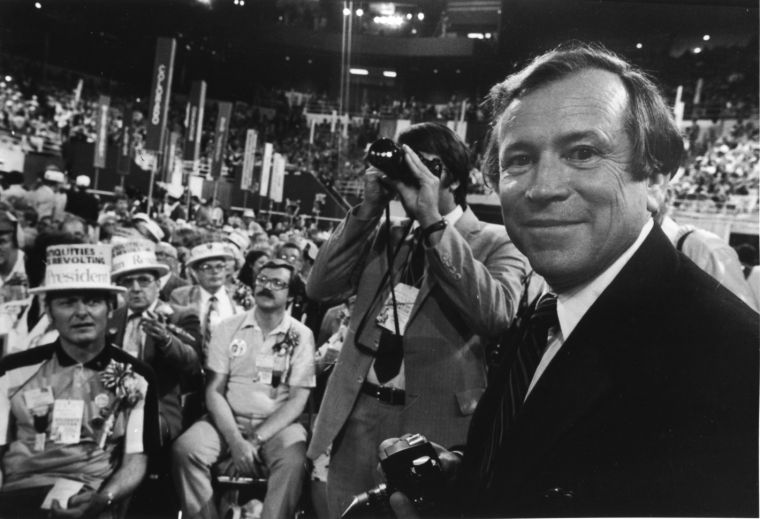
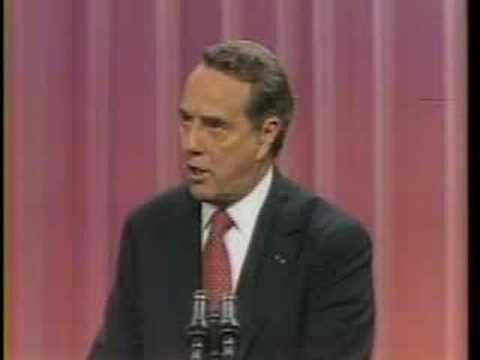
.jpg/185px-Gerald_Ford_(portrait).jpg)
